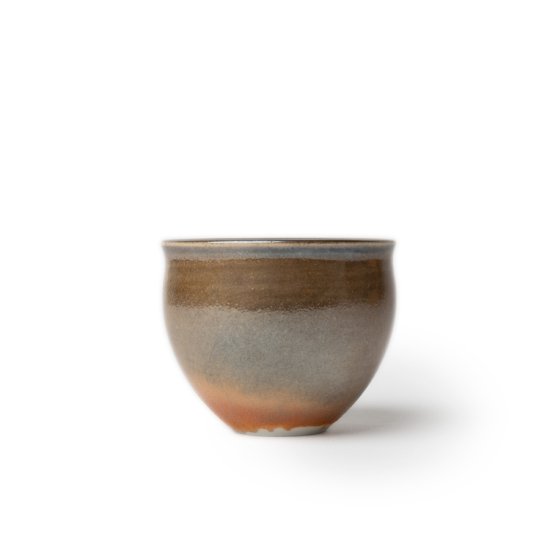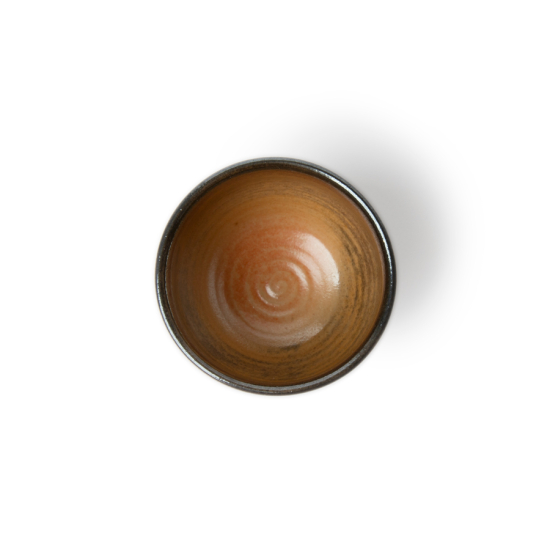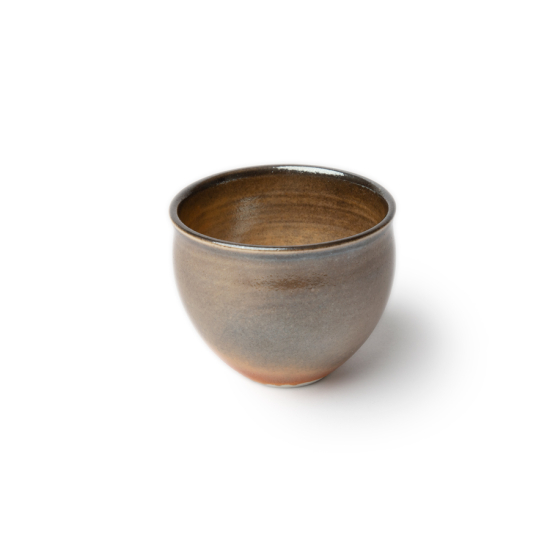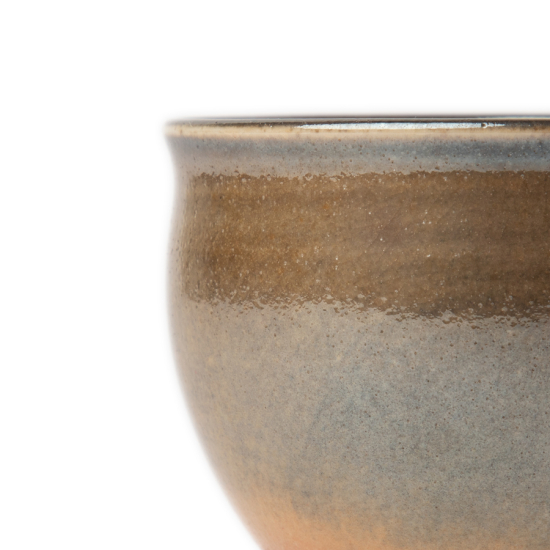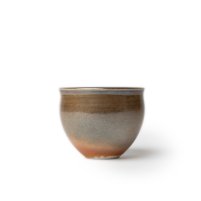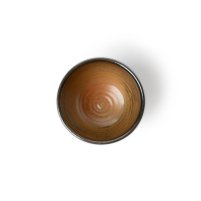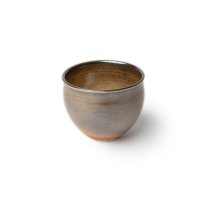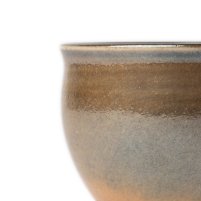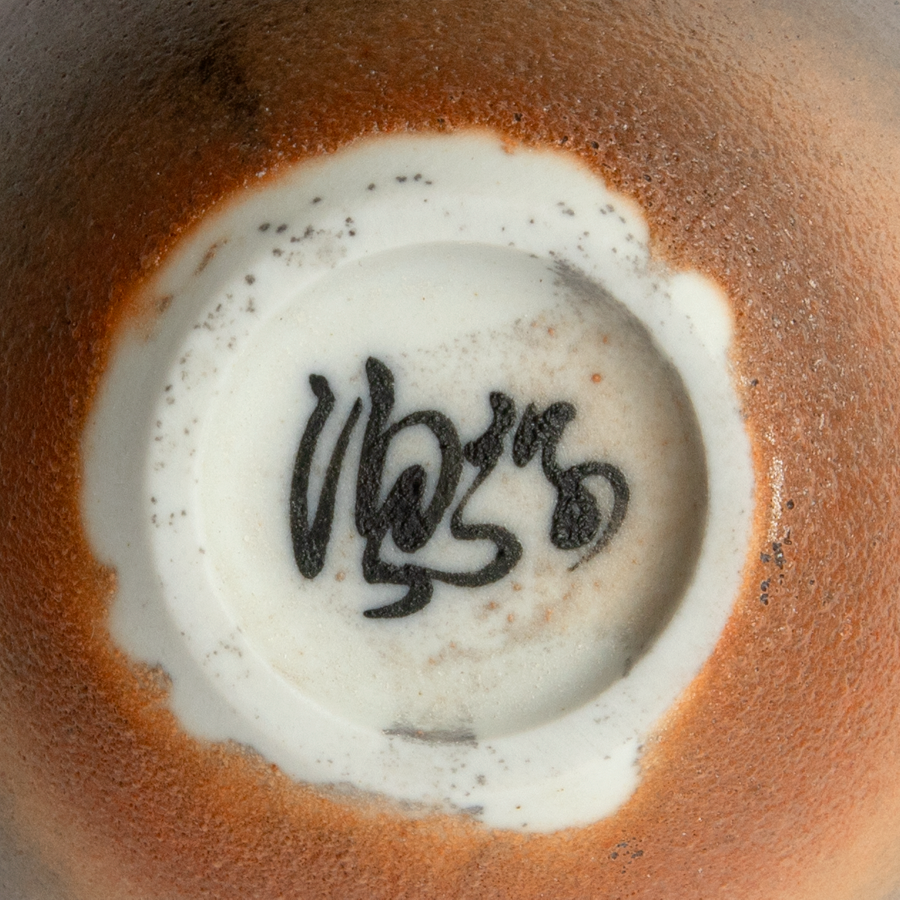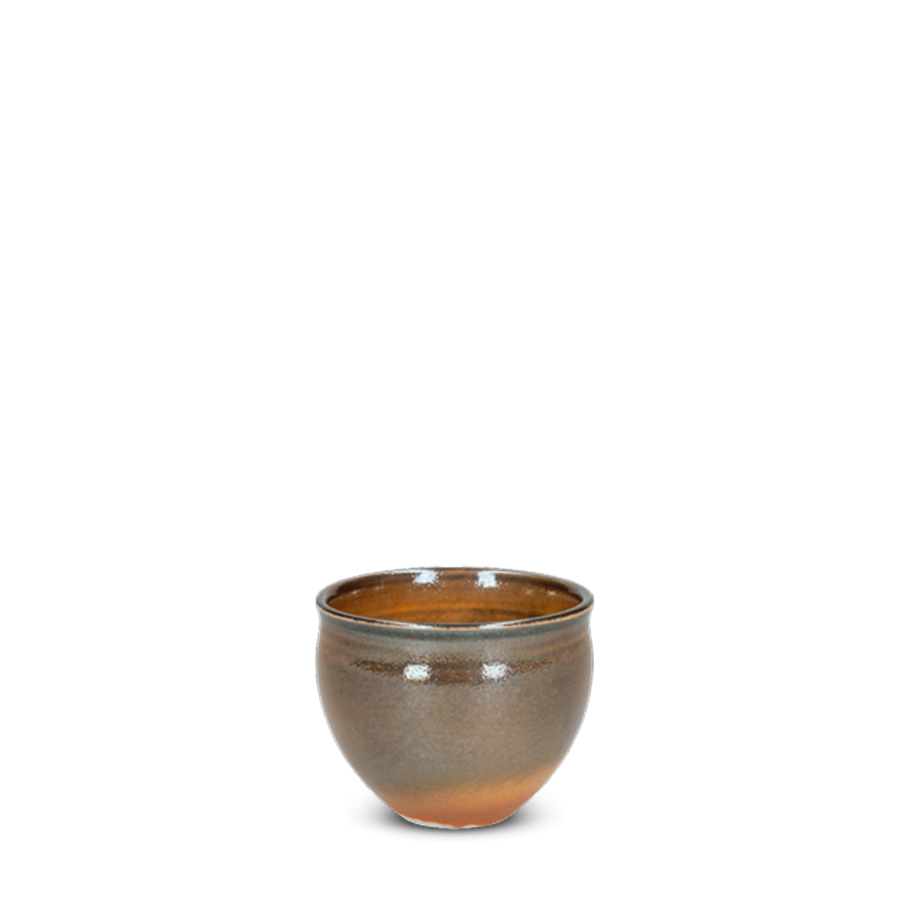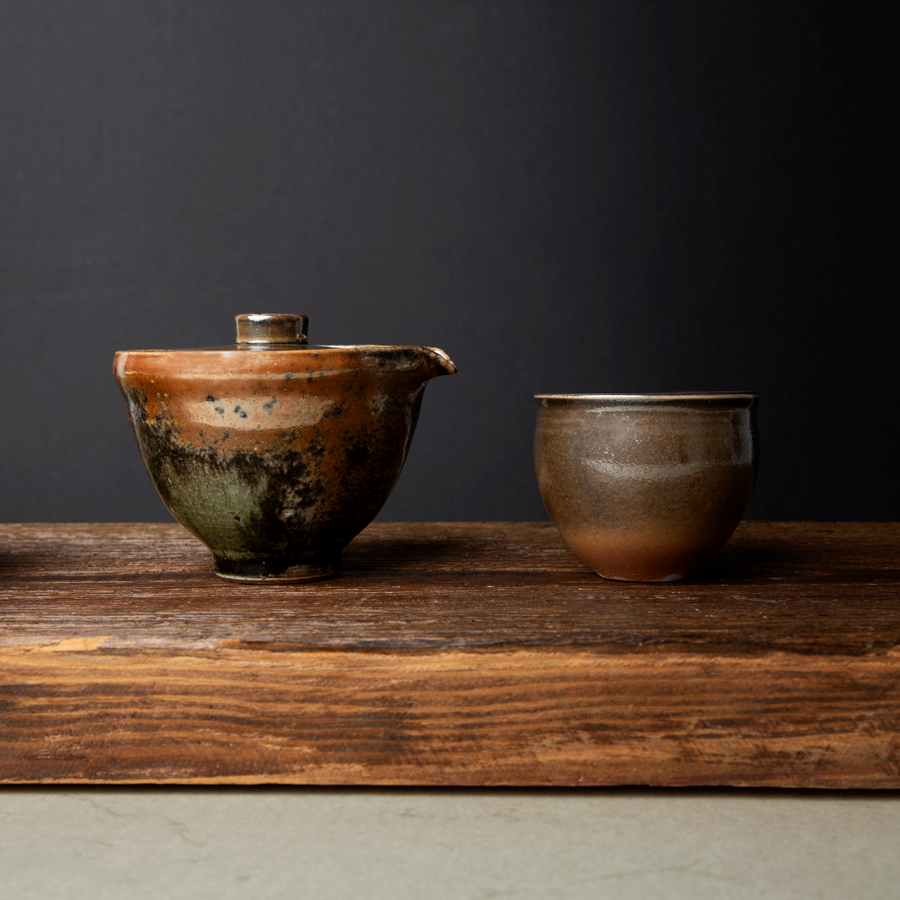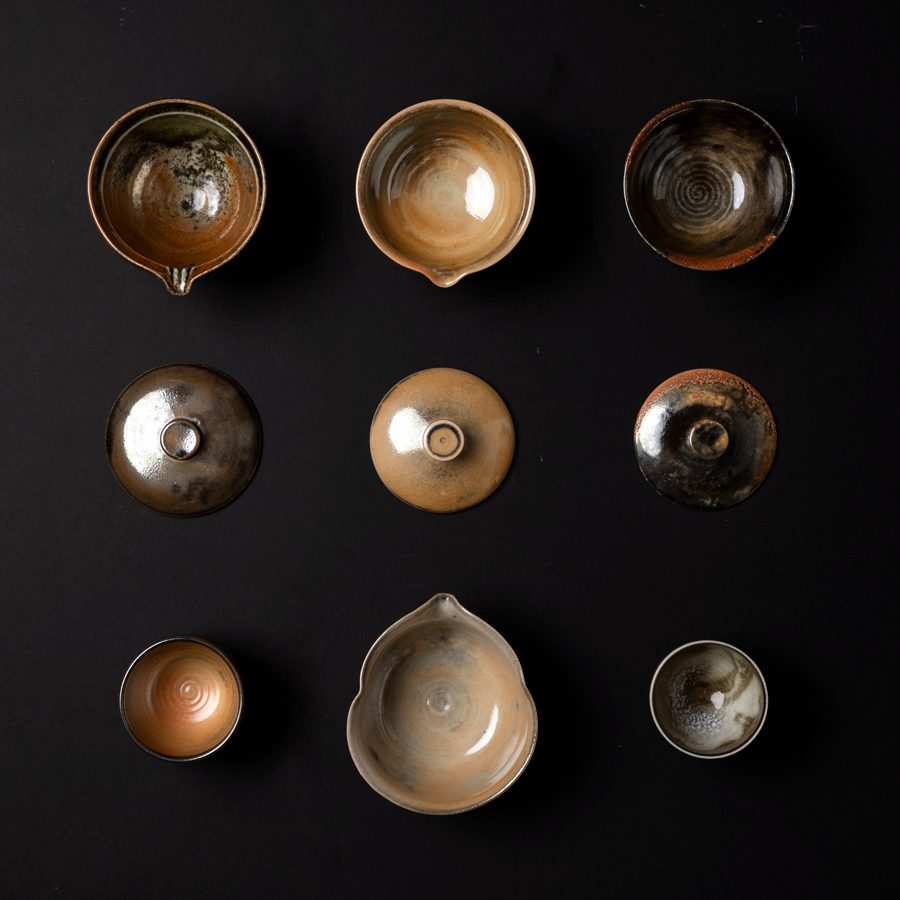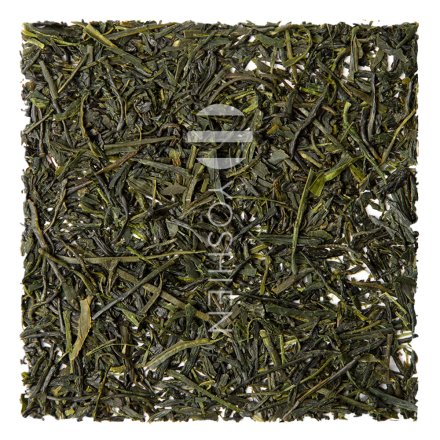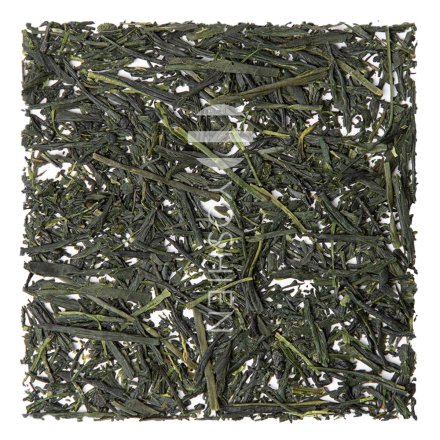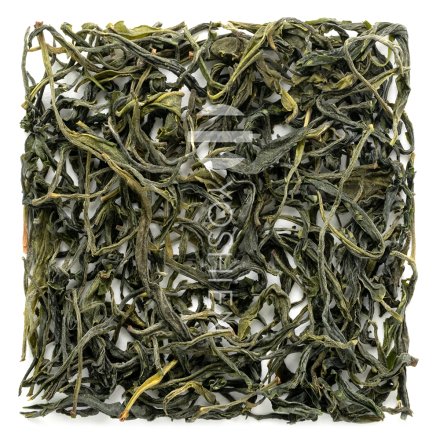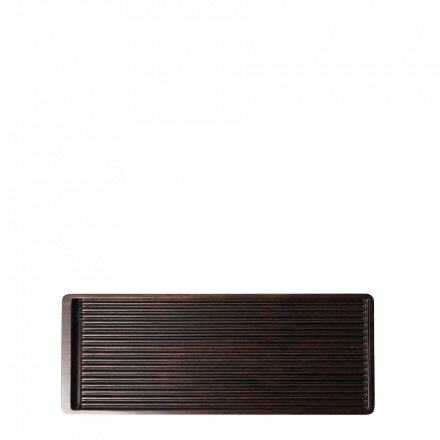Gently hand wash with warm water and a soft cloth or sponge, using a mild washing-up liquid as necessary. Do not put in dishwasher or microwave.
Teacup
Xu Ni
Jiang Liqiang
SKU
7259
Touched by the flame, this curvy wood-fired teacup is baked for over 60 hours and glazed with soda to achieve an organic, one-of-a-kind surface finish reminiscent of splash marks in traditional Chinese ink paintings. This masterpiece is part of the Xu Ni (須彌) collection named after the sacred Buddhist five-peaked mountain.
| Product | Teacup, brown and orange |
| Maker | Jiang Liqiang |
| Origin | Jingdezhen, Jiangxi, China |
| Dimensions | Ø7cm x 5.6cm, foot Ø2.7cm |
| Volume | 110ml |
| Weight | 135g |
| Material | Porcelain |
| Kiln temperature | 1200-1230°C |
| Artist's mark | Signature on base |
| Packaging | Gift box |
Special Note: The finish on wood- and soda-fired ceramics is unpredictable, therefore colour, glazing and texture may vary considerably to the product shown here – please enjoy the uniqueness of each piece!
In stock



